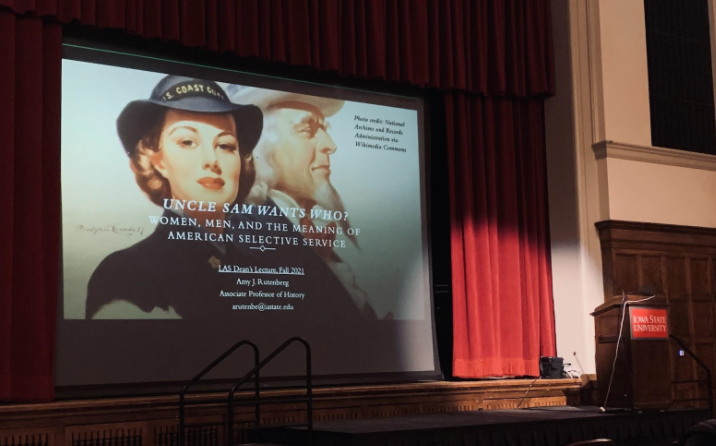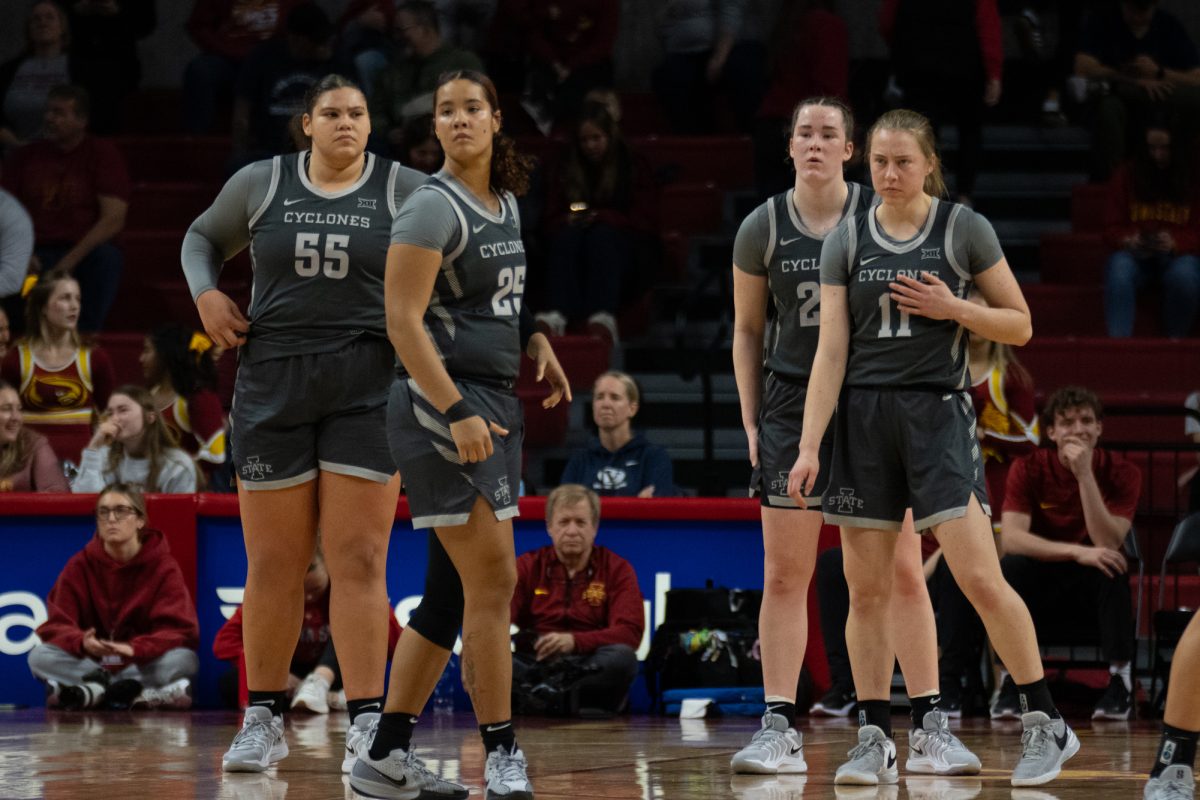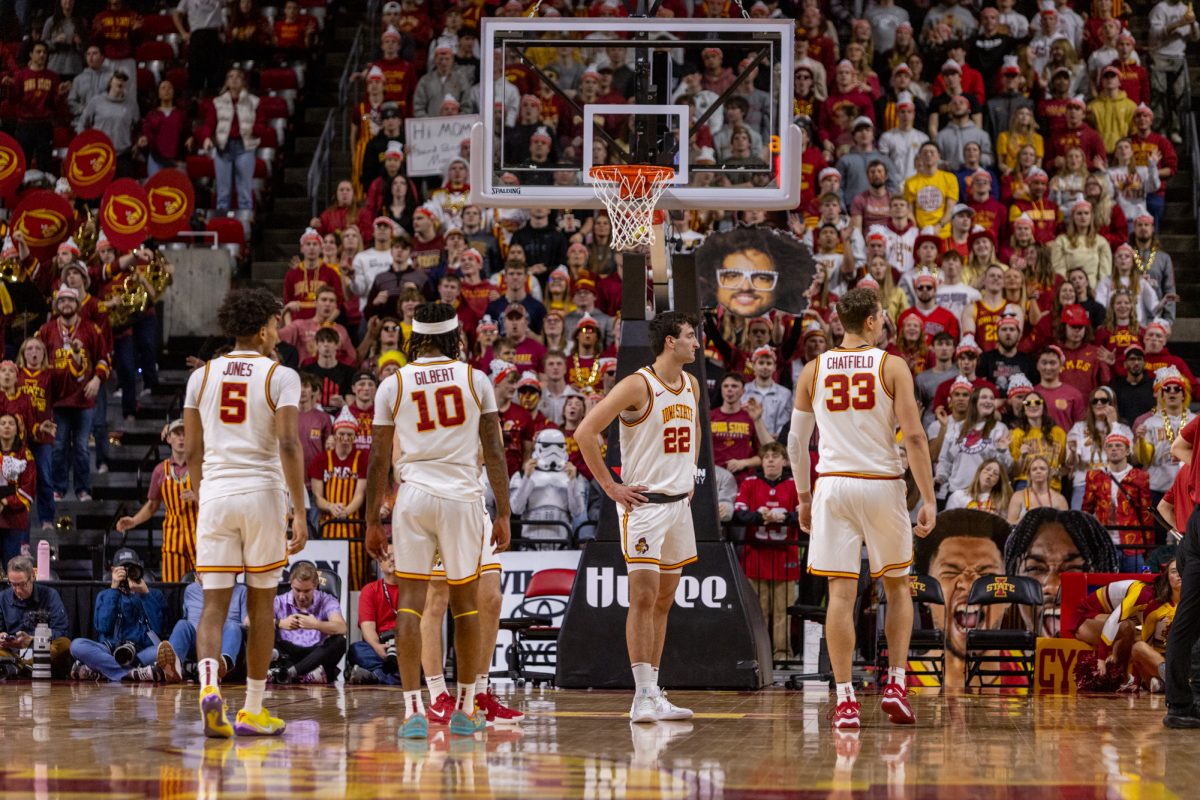Iowa State lecture discussed the possibility of women being drafted
November 9, 2021
It is possible that women will have to start registering for the draft along with men in the near future, as it has been a topic of debate in Congress. While there is a low possibility that a draft would be needed because of high volunteer rates, the draft is still needed for possible emergencies.
This discussion was brought to Iowa State through the lecture “Uncle Sam Wants Who? Women, Men, and the Meaning of American Selective Service” presented by associate professor of history Amy J. Rutenberg on Tuesday in the Memorial Union. Rutenberg was given the opportunity to share a topic of her expertise as she was the faculty member chosen for the 31st College of Liberal Arts and Sciences Dean’s Lecture Series.
Active and retired military members received a round of applause and an acknowledgment for their important service before the lecture. Not only current and past military members were shown importance during this lecture, but also future military members. These future members include both men and women volunteers, as well as men and potentially women who are added to the draft.
Rutenberg spent the majority of her time giving a summary of the controversial and indecisive history of women in the military.
According to Rutenberg, at the beginning of the United States military, it was expected that people would only fight if they volunteered their time and service. Over time, it was decided that men needed military involvement to fulfill their citizenship. While men were expected to fight to earn citizenship, women were expected to earn theirs by teaching their children and taking care of their families.
Groups who were excluded from the military draft, including women and minorities, fought for their right to serve their country to earn equal citizenship. Women and African Americans were only allowed to volunteer when they were in desperate need of soldiers.
Rutenberg said that a draft was then created where eligible men were required to identify themselves to the Selective Service, along with a place for people to volunteer. After this was established, women were once again excluded and could only volunteer for the Women’s Army Corps and Nurse Corps. During this time, the idea of female soldiers was stereotypical and became a source of jokes and comic strips printed in newspapers, which Rutenberg showed examples of.
“There was the impression that any woman who served must either be a sex-crazed husband hunting Bimbo or a butch lesbian,” said Rutenberg. “The Corps themselves created strict regulations designed to make the women who volunteer look wholesomely all American. White, middle class, beautiful, certain body image, all the things that are wrapped up in that particular image.”
Women were looked at this way in the military to convince middle-class parents that their daughters were safe to go off to the war because parents had to sign off on them going until they were 21, while men only had to be signed off by parents until age 17.
After this, many people who were against adding women to the draft tried to make female service members look absurd by saying “end the combat gap” because 97 percent of combat deaths are men. Rutenberg said this gives the idea that women fighting instantly leads to women’s deaths.
Even feminists and activists have split feelings. Rutenberg described a strand of feminists that believe women can do anything a man can do, which is why women also belong in the draft so that they can serve equally. She also told of another strand of feminists that believe it is natural for women to nurture their family and stay home, and they should have no involvement in war.
No matter what people’s opinions are, men and women are currently able to volunteer for the military, and as of now, only men are added to the draft.
Rutenberg’s personal opinion is that it is important to make people aware of the possible change in the draft. She reminded the audience that everyone is affected by this because everyone is either female-identifying or related to someone who is. She told the importance of paying attention to decisions made by elected representatives because, without discussion of these decisions and their underlying purposes, there could be unintended and possibly harmful consequences.







